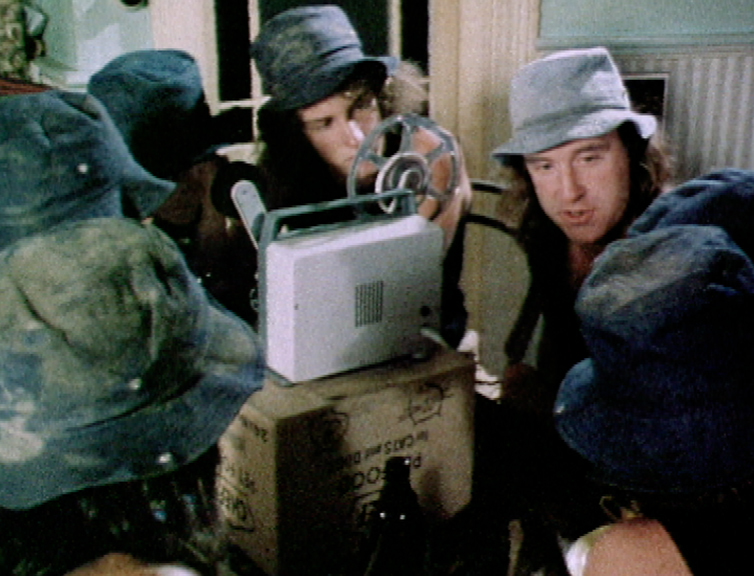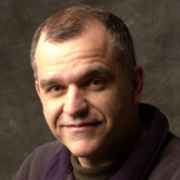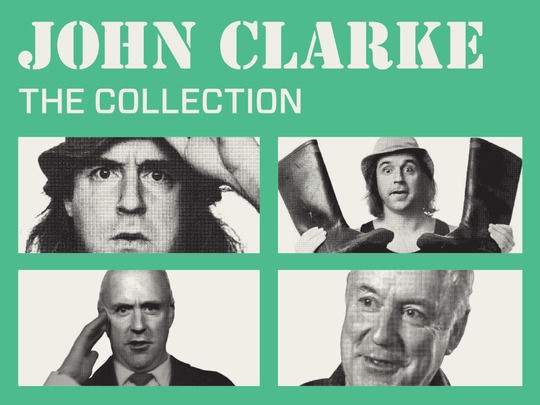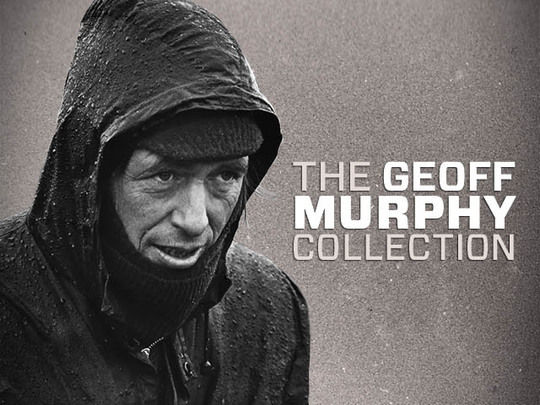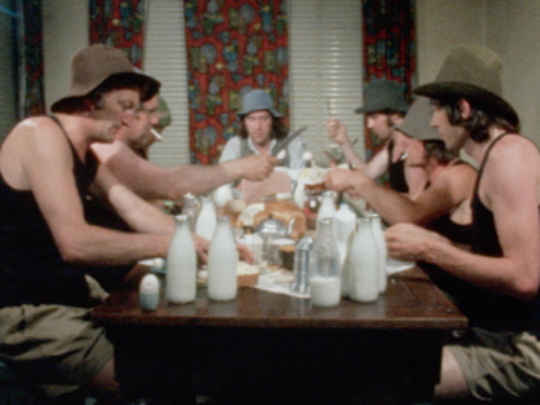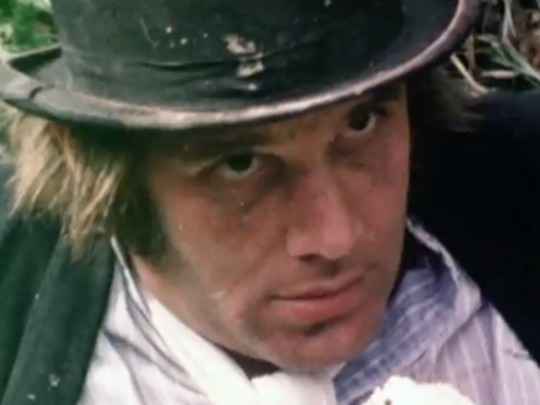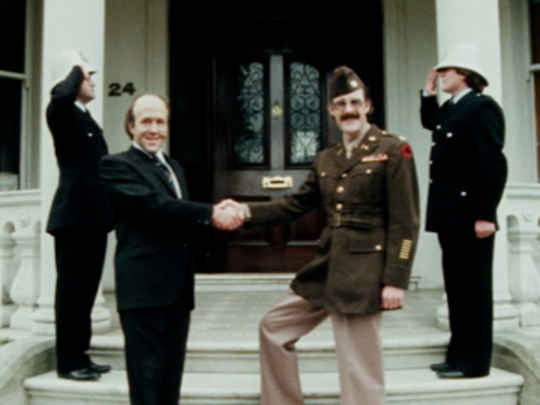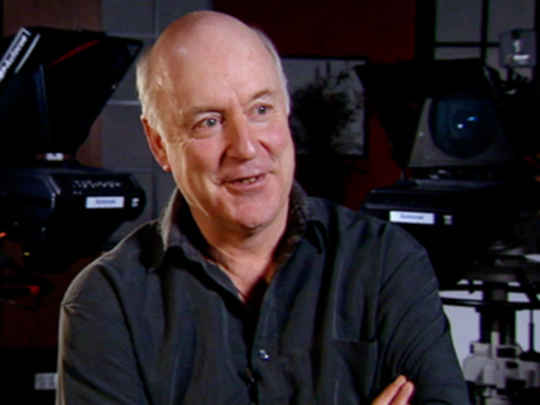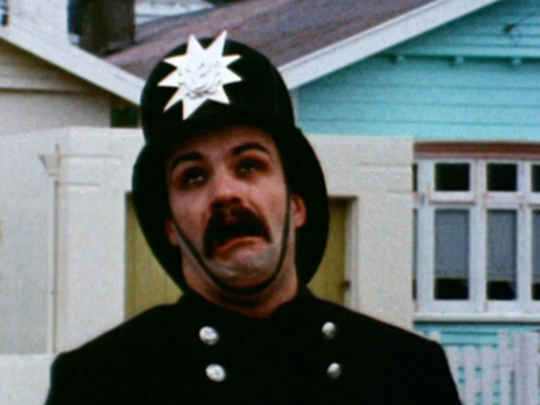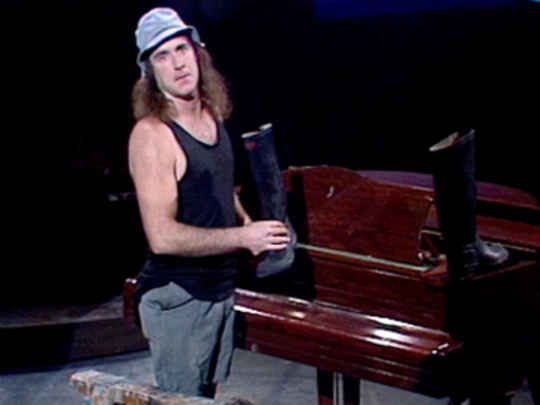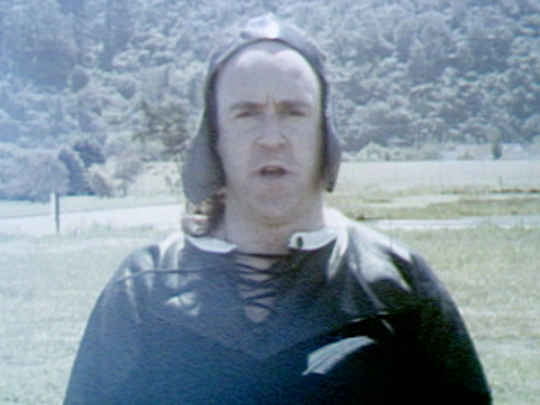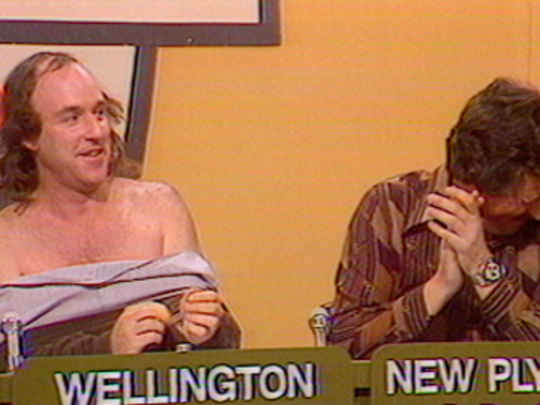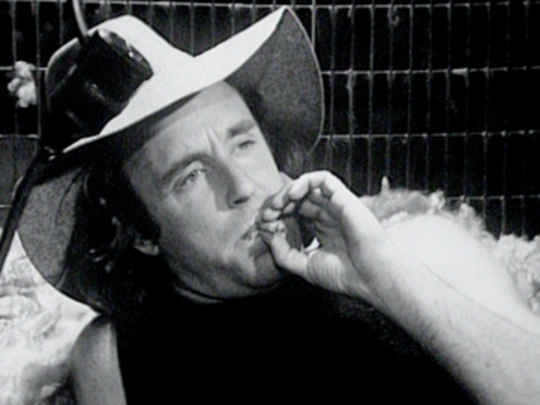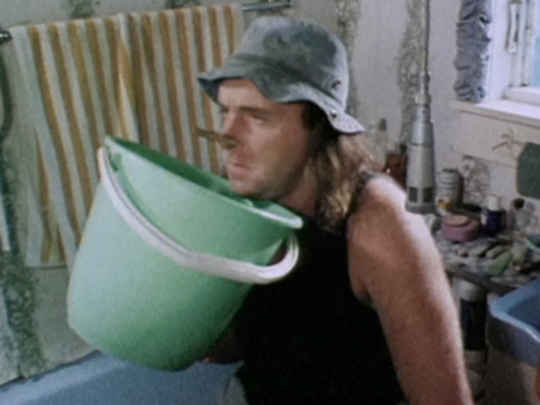Dagg Day Afternoon
Short Film (Full Length) – 1977
A perspective
The plotline: a day with gentleman farmer Fred Dagg is anything but predictable as he and his brood of Trevors embark on a secret mission to find a missing bionic sheep — the infamous six million dollar ram...
Dagg Day Afternoon isn't so much a movie as a loose collection of sight gags, running jokes, and topical (for 1977) parody. It's really an overgrown episode from a TV sketch comedy series that never was.
Director Geoff Murphy had already been involved in exactly that kind of venture, with an anarchic TV series featuring the Blerta ensemble. He'd managed to squeeze out six episodes before state television clapped a stopper on his antics. John Clarke, on the other hand, was having a hard time engaging the NZ Broadcasting Corporation in the wisdom of giving his alter ego, Fred Dagg, a series of his own — despite his comic genius beng hailed two years running as TV Personality of the Year.
During a 2007 interview on National Radio, Kim Hill asked Clarke if he'd left New Zealand with ill feelings towards the NZBC. Clarke replied, "not at all. I had ill feelings before I left".
So Dagg Day Afternoon must be seen in context: as the product of several talents and agendas colliding fruitfully at a particular moment in time. Made prior to the establishment of a local film commission, and in spite of minor obstacles like lack of funding, its very existence came from an anarchic, raw, desire to get something on the big screen.
Geoff Murphy's eclectic but productive career had already belched out Wild Man, a mad West Coast western starring Bruno Lawrence and Ian Watkin. The wayward epic began as an episode of the Blerta series — but some funding had been secured to make a movie-length version. Aspiring producer John Barnett (who was also John Clarke's manager) figured that all they needed was another short film, and they could release it as a double bill.
Enter John Clarke, whose comedic creation Fred Dagg had become a Kiwi icon following his first appearance on-screen, in a 1973 episode of Gallery. Further TV appearances and a couple of hit songs had kept the character in the public eye. Clarke had helped out Murphy before, with cameo roles in Wild Man and Percy the Policeman.
Clarke flew back to New Zealand, and Dagg Day Afternoon was shot in roughly five days. As Clarke recalled later to author Matt Elliott, "Geoff and I drove from Auckland to Wellington ... we made the thing up as we went along." The film was funded partly by sponsorship money, with on-screen plugs for Nissan vehicles, Bell Tea and Smith's Crisps.
Although it was the shorter of the two films, Dagg Day Afternoon sat at the top of the bill. Clarke was definitely the comedian of the day, and the two films won respectable audiences. Viewers howled their eyes out at spot on parodies of 2001 A Space Odyssey and popular TV show The Six Million Dollar Man. The more original doings of Fred and the Trevs (including beer and cornflakes for breakfast) were also amusing.
Another eccentric storyline involves a secret agent (actor/writer Michael Wilson) and a bionic sheep; any excuse for a gag. Geoff Murphy and his troop of Acme Sausage Company veterans executed a lively series of low budget ‘happenings' with their usual gusto.
Clarke's ear for Kiwi vernacular and sharp cultural observation provides the best jokes. After introducing one of his many sons (all named Trev), a salesman responds, "Ah, fine big lad". Fred snaps back, "Yep, he's like his mother in that respect". Later, in a restaurant, Fred orders a drink: "A glass of your finest red". The waiter replies, "Lion Red?" "Yeah, a couple thanks".
It's spot on social satire, but achieved with a gift for wry empathy that meant Kiwis got the joke, without feeling they were being made fools of. John Clarke, or ‘Clarkey', was one of us, and audiences cheered him for it.
Unfortunately, this would be one of the last times Clarke graced New Zealand screens. Even as Dagg Day Afternoon was helping to cement a local filmmaking infrastructure, he was building a new life and career in Australia. One suspects he made the right personal choice; but it's a cultural loss that's impossible to overestimate.
Costa Botes is a New Zealand filmmaker whose work includes many documentaries and Forgotten Silver, which he co-directed with Peter Jackson.
